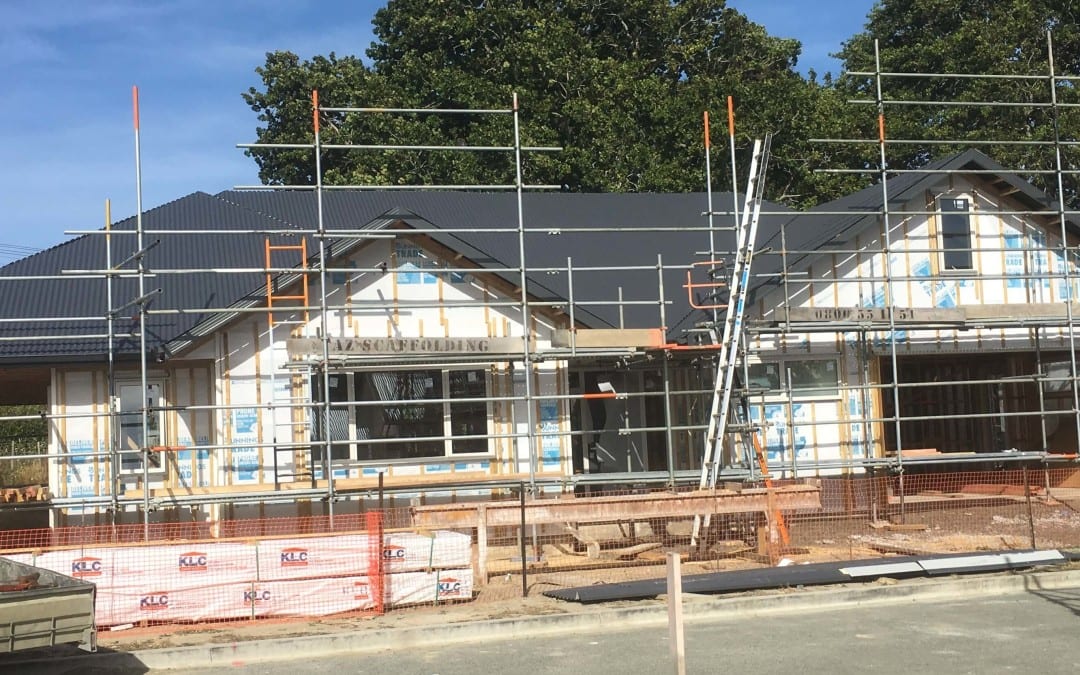Once again MBIE is looking into the feasibility of making it compulsory for builders to take out insurance. Insurance to protect homeowners that is. This approach is common in Australia, where individual states require builders to be licensed and take out insurance for residential building projects.
How do they benefit homeowners?
A builders warranty (also known as a builders guarantee or home warranty) is where a third party (usually an insurance company) guarantees to protect a homeowners’ financial investment during construction if their builder fails to complete it (usually due to the builder having gone bust). The guarantee will reimburse a lost deposit or finish the build, absorbing any extra costs to do so. They also guarantee to fix defects for up to 10 years.
Are they a good idea?
The Building Act makes builders responsible for their work for up to 10 years. So why is an insurance needed on top of this? The reality is that our construction industry is a volatile one, with lots of competition, low barriers to entry, low margins and in many cases building firms being run by people who aren’t skilled in business management, particularly when it comes to the financial side (this is an aspect of building that the LBP scheme doesn’t address). So failure is inevitable for some, with customers and suppliers often bearing significant losses. That’s really where independent builders guarantees come to the rescue, at least for homeowners. And if they’re compulsory a builder who can’t get one because they aren’t up to scratch won’t be able to build. This will increase the barriers to entry to the industry, helping to weed out poor performers, which has to have a positive effect on the overall health of the sector.
Some versions include protection for the builder too
Both the NZCB and Builtin guarantees include a “waiver of subrogation”. This is a powerful benefit, as it gives the builder protection, after the first 12 months, from the cost of fixing defects if a claim is made under the guarantee. In this situation the insurer fixes the defects without seeking recovery of their costs from the builder. However, they may go after other parties, such as product manufacturers and subcontractors, if they are deemed responsible for the problem.
The history so far
First mooted in 2009 at the height of the leaky homes crisis by then Building & Construction Minister Maurice Williamson, it was proposed that homeowners would be able to opt out of the scheme if they felt it was not needed. This idea was dropped in 2011 but picked up again in 2013, with a system proposed to be based on the Australian model. However, once again a compulsory system was dropped in favour of an education-based approach encouraging homeowners to choose whether or not they took one.
This time around
Most recently, the possibility of builders warranty insurance becoming mandatory in New Zealand is less a result of the Government wanting to protect homeowners and more due to their desire to cap the liability of councils for defective building work. However, capping council liability opens up the risk of homeowners being out of pocket if other parties, such as the builder, aren’t around to contribute their share to the repair. That’s why the Law Commission recommended compulsory builders warranty insurance would have to be introduced alongside any capping of council liability.
What are the odds?
To date, the Government has been unwilling to go this far, aiming instead to use compulsory disclosure statements to increase awareness of builders guarantee insurance among homeowners, so that they can choose whether or not to take it. However, anecdotal evidence suggests many builders aren’t following the new disclosure rules, and awareness of builders guarantees among the building public remains low. And they can be a difficult sell for builders. After all, who wants to recommend their customers take out insurance in case they go bust or their workmanship isn’t up to scratch? That’s part of the reason a mandatory approach makes sense, but it means all builders, and ultimately homeowners, paying for the poor performance of a few bad operators.
Where can you get one?
Members of the Registered Master Builders Association can provide a Master Build Guarantee, which is self-insured and operated by Master Build Services, a business owned by RMBA. They have a range of guarantees to choose from, with varying levels of cover.
NZCB members are required to provide Halo Guarantee Insurance, which is managed by a broker and underwritten by a coverholder at Lloyds of London.
For builders not a member of these two trade associations, or for those who wish to provide an alternative, Builtin Insurance is New Zealand’s leading independent provider of builders guarantees. Builtin Accredited Builders can choose from a range of 10 year guarantees to suit their business and the type of work being done. Although accreditation is free, there is an initial application process that involves an assessment of the builder’s financial solvency, building experience & competence and construction supervision practices.
A final word
As to whether they’ll become compulsory here any time soon, your guess is as good as ours. With an election looming and major political challenges to anything that could increase the cost of building houses, it may take a change of government, or another major industry failure, before mandatory building warranty insurance becomes a reality.
In the meantime and despite this, given their very reasonable cost for the protection they give, an independent builders guarantee makes good sense for customers and builders alike.

